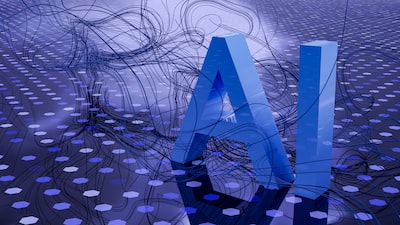AI in Security: The Frontier of Predictive Safeguarding and Beyond

In an increasingly interconnected world, security remains one of the most pressing concerns for individuals, corporations, and governments alike.
From physical security systems to the nebulous realm of cyberspace, threats evolve at a staggering pace. Yet, in the face of these ever-mounting challenges, we have a potent ally: Artificial Intelligence (AI).
As we stand on the cusp of a new era, AI’s integration into security systems offers not just reactive solutions but proactive, predictive safeguards. Let’s delve into the transformative impact of AI on security paradigms.
Initiative-taking Threat Detection: Always One Step Ahead
Traditional security measures often operate on a reactive basis—addressing threats after they’ve already occurred. However, AI’s real prowess lies in its ability to be proactive.
By constantly analyzing vast amounts of data, AI systems can detect and even predict suspicious activities before they materialize into tangible threats. This initiative-taking approach ensures that potential dangers are nipped in the bud, long before they escalate.

Enhanced Surveillance: Seeing Beyond the Human Eye
Human vigilance, while essential, has its limitations. Fatigue, distractions, and inherent biases can sometimes lead to oversights.
AI-driven surveillance cameras, however, see and analyze without these constraints. By processing real-time footage, these systems can detect anomalies, unauthorized activities, or suspicious behaviors, ensuring that no threat goes unnoticed.
Access Control via Facial Recognition: The Future of Authentication
While passwords and keycards have long been staples of security, they come with their own set of vulnerabilities.
AI-powered facial recognition systems offer a more secure, non-transferable means of access control. By analyzing thousands of facial features in mere seconds, these systems ensure that only authorized individuals gain access, adding another robust layer to security infrastructures.
Predictive Policing: AI’s Role in Crime Prevention
The concept of “predictive policing” might sound like science fiction, but with AI, it’s becoming a reality. By analyzing historical crime data, social media activity, and various other data points, AI can identify patterns and predict potential criminal activities in specific areas.
This allows law enforcement to allocate resources more effectively, potentially preventing crimes before they happen.
Cybersecurity: The Digital Fortress Powered by AI
In a digital age, cyber threats pose as significant a danger as physical ones, if not more. AI is instrumental in bolstering cybersecurity defenses.
By constantly monitoring network activities, AI can identify patterns typical of cyber-attacks and raise alarms even at the earliest stages of a breach attempt. In a realm where threats are often silent and invisible, AI acts as the ever-watchful sentinel.
Conclusion
AI’s foray into security is reshaping the very foundations of how we perceive and address threats. While the technology is indeed transformative, it also prompts essential questions about privacy, ethics, and the potential for misuse.
As we integrate AI more deeply into our security frameworks, it’s crucial to tread with a balance—leveraging AI’s immense potential while ensuring it’s used responsibly and ethically. The future of security, powered by AI, beckons with promise, but it’s the future we must approach with informed caution and wisdom.




